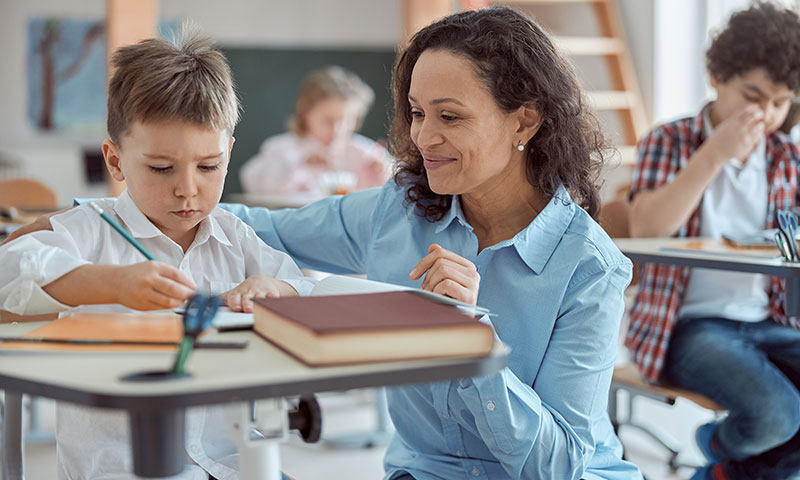In the world of education, one size rarely fits all. This is particularly true for special education, where teachers must tailor their methods to meet the diverse needs of their students. Special education resources are vital in helping teachers provide individualized support and ensure every student can thrive. Whether you’re new to special education or a seasoned professional, the right tools, strategies, and resources can make all the difference. Let’s dive into the essential special education resources every teacher should know about.
Understanding the Need for Special Education Resources
The Growing Demand for Special Education
The demand for special education services has been steadily increasing as schools become more inclusive. Students with a wide range of physical, intellectual, and emotional disabilities require personalized approaches to learning. With the growing emphasis on inclusive classrooms, teachers need effective resources to cater to these students’ needs without compromising the learning experience of others.
Challenges Faced by Special Education Teachers
Special education teachers face a unique set of challenges, from managing diverse learning disabilities to addressing behavioral issues. These educators often juggle multiple roles, acting as instructors, advocates, and support systems for their students. The right resources are essential in managing these responsibilities while ensuring that every child receives the support they need to succeed.
The Importance of Adapting to Diverse Learning Needs
One of the key goals in special education is to create an environment where all students can learn in a way that suits them best. This requires teachers to adapt their lesson plans and teaching methods based on individual learning styles and challenges. Having access to specialized resources enables teachers to better understand their students and implement strategies that foster meaningful learning.
Tools and Technologies for Special Education
Assistive Technology Devices
Assistive technology has revolutionized the way special education is delivered. From communication boards for non-verbal students to specialized keyboards for those with motor difficulties, assistive devices provide students with the tools they need to engage in learning. Examples include text-to-speech software, hearing aids, and augmentative communication devices that support language development.
Specialized Software and Applications
There’s a wide range of software and apps designed to help students with special needs. These include programs like Kurzweil 3000, which helps students with dyslexia, or Dragon NaturallySpeaking, which allows students with physical disabilities to dictate text. These tools make it easier for students to keep up with their peers and reduce frustration by providing accessible ways to learn and complete tasks.
Adaptive Equipment for Physical Needs
Some students require more than just educational tools—they need adaptive equipment to accommodate physical disabilities. This could range from modified desks and chairs to mobility devices like wheelchairs and walkers. Ensuring the classroom is equipped with these tools can significantly improve a student’s learning experience and independence.
Classroom Strategies for Special Education
Differentiated Instruction Techniques
Differentiated instruction is key in special education. This involves adjusting teaching methods to accommodate different learning styles, abilities, and interests. Teachers might modify the content, process, or product of their lessons to suit students’ needs. For example, while one student might benefit from visual aids, another might need more hands-on learning.
Classroom Management Tools
Managing a special education classroom requires a unique set of strategies. Visual schedules, social stories, and reward systems are often used to help students understand expectations and routines. Teachers can use apps like ClassDojo to track behavior and provide immediate feedback to students and parents, reinforcing positive behaviors and offering support for challenges.
Positive Behavior Interventions and Supports (PBIS)
PBIS is a proactive approach to behavior management. It involves teaching students positive behaviors through clear expectations, consistent routines, and rewards. By focusing on prevention rather than punishment, teachers can create a supportive environment that encourages good behavior and reduces the likelihood of disruptions.
Individualized Education Programs (IEP) and 504 Plans
An IEP is a legal document that outlines the specialized education services a student with disabilities will receive. It’s tailored to meet each student’s unique needs, covering everything from learning goals to the specific accommodations required. A 504 plan, on the other hand, ensures that students with disabilities receive the necessary accommodations to participate fully in general education. Both are crucial resources that guide teachers in providing personalized support.
Educational Resources for Teachers
Teacher Training Programs
Special education requires specialized knowledge. Teacher training programs offer professional development opportunities to help educators build the skills they need. Whether it’s learning about new assistive technologies or behavior management techniques, continuous training ensures teachers stay equipped to handle their evolving classroom environments.
Online Resources and Communities
The internet is a treasure trove of resources for special education teachers. Websites like Teachers Pay Teachers offer lesson plans and classroom resources, while blogs and forums provide spaces for educators to share tips, advice, and support. Joining online communities like Reddit’s Special Education subreddit or Facebook groups can offer valuable insights from fellow educators.
Workshops and Conferences
Attending special education workshops and conferences is another great way to stay informed about the latest trends and resources. These events provide teachers with hands-on experience and networking opportunities, enabling them to learn from experts and peers alike.
Collaboration and Support Systems
Working with Paraprofessionals and Support Staff
Special education teachers rarely work alone. Paraprofessionals, speech therapists, occupational therapists, and other support staff play a crucial role in helping students succeed. Effective collaboration with these professionals ensures that all aspects of a student’s development—academic, emotional, and physical—are addressed.
Engaging with Parents and Guardians
Parents are a vital part of the special education process. Regular communication with parents ensures that teachers and families are aligned in supporting the student’s progress. Tools like ClassTag or Remind can facilitate easy communication, while regular IEP meetings provide a formal space to discuss goals and challenges.
Partnering with Therapists and Specialists
Speech therapists, occupational therapists, and behavioral specialists often work alongside teachers to support students with specific needs. Collaborating with these professionals helps ensure that students receive comprehensive care, addressing everything from academic goals to life skills and emotional development.
Emotional and Mental Health Resources
Self-Care for Special Education Teachers
Teaching special education can be emotionally and physically demanding. It’s important for teachers to prioritize self-care to prevent burnout. Mindfulness practices, regular exercise, and professional counseling are great ways for educators to manage stress and maintain their mental health.
Mental Health Support for Students
Many students in special education struggle with mental health issues such as anxiety, depression, or behavioral disorders. Teachers need access to mental health resources and professionals to help support these students. Schools can provide counselors, social workers, and mental health programs that assist students in managing their emotions and behaviors.
Mindfulness and Stress Management Techniques
Introducing mindfulness practices into the classroom can be beneficial for both teachers and students. Simple activities like deep breathing exercises, guided meditation, or sensory breaks help students regulate their emotions and focus better on learning.
Legal and Ethical Considerations
Understanding Special Education Law (IDEA, ADA, Section 504)
Special education is governed by laws like the Individuals with Disabilities Education Act (IDEA) and Section 504 of the Rehabilitation Act. Teachers need to be familiar with these laws to ensure they’re providing appropriate accommodations and services to students.
Ensuring Compliance with Regulations
Compliance with special education laws isn’t optional—it’s mandatory. Teachers must ensure that IEPs and 504 plans are followed to the letter and that accommodations are consistently provided. Failure to comply can result in legal consequences for the school and hinder the student’s success.
Ethical Guidelines for Special Education
Beyond legal requirements, special education teachers must also adhere to ethical guidelines that prioritize student welfare, confidentiality, and respect. Ethical teaching practices help foster trust and ensure that students are treated with dignity and fairness.
Professional Development Resources
Continued Education for Special Education Teachers
Special education is constantly evolving, with new teaching methods, technologies, and research emerging all the time. Continuing education through courses, certifications, and workshops helps teachers stay current and improve their teaching practice.
Certification and Credentialing Programs
In many regions, teachers must hold specific certifications to work in special education. These programs provide the training and knowledge necessary to meet the needs of students with disabilities. Staying up-to-date with credentials ensures teachers remain qualified to provide the best support possible.
Conclusion
Special education teachers play a vital role in shaping the lives of students with disabilities. Having the right resources—whether they are tools, training, or collaborative networks—can make all the difference in ensuring that every student receives the education they deserve. By continuously seeking out new resources and learning opportunities, teachers can better adapt to the changing needs of their students and create a more inclusive, supportive classroom environment.
FAQs
What are the best resources for new special education teachers?
New teachers should start with online communities, training programs, and tools like assistive technology to familiarize themselves with the unique needs of their students.
How can assistive technology improve learning for special needs students?
Assistive technology provides accessible ways for students to engage in learning, from communication tools for non-verbal students to software that assists with reading and writing.
What is the role of parents in supporting special education teachers?
Parents provide essential insights into their child’s needs and progress, making them key partners in the educational process.
What legal protections are in place for special education teachers?
Laws like IDEA and Section 504 provide guidelines for accommodations and protect both students and teachers from discrimination.
How can teachers stay updated with the latest trends in special education?
Teachers can attend workshops, conferences, and pursue continued education to stay current on special education trends and best practices.





